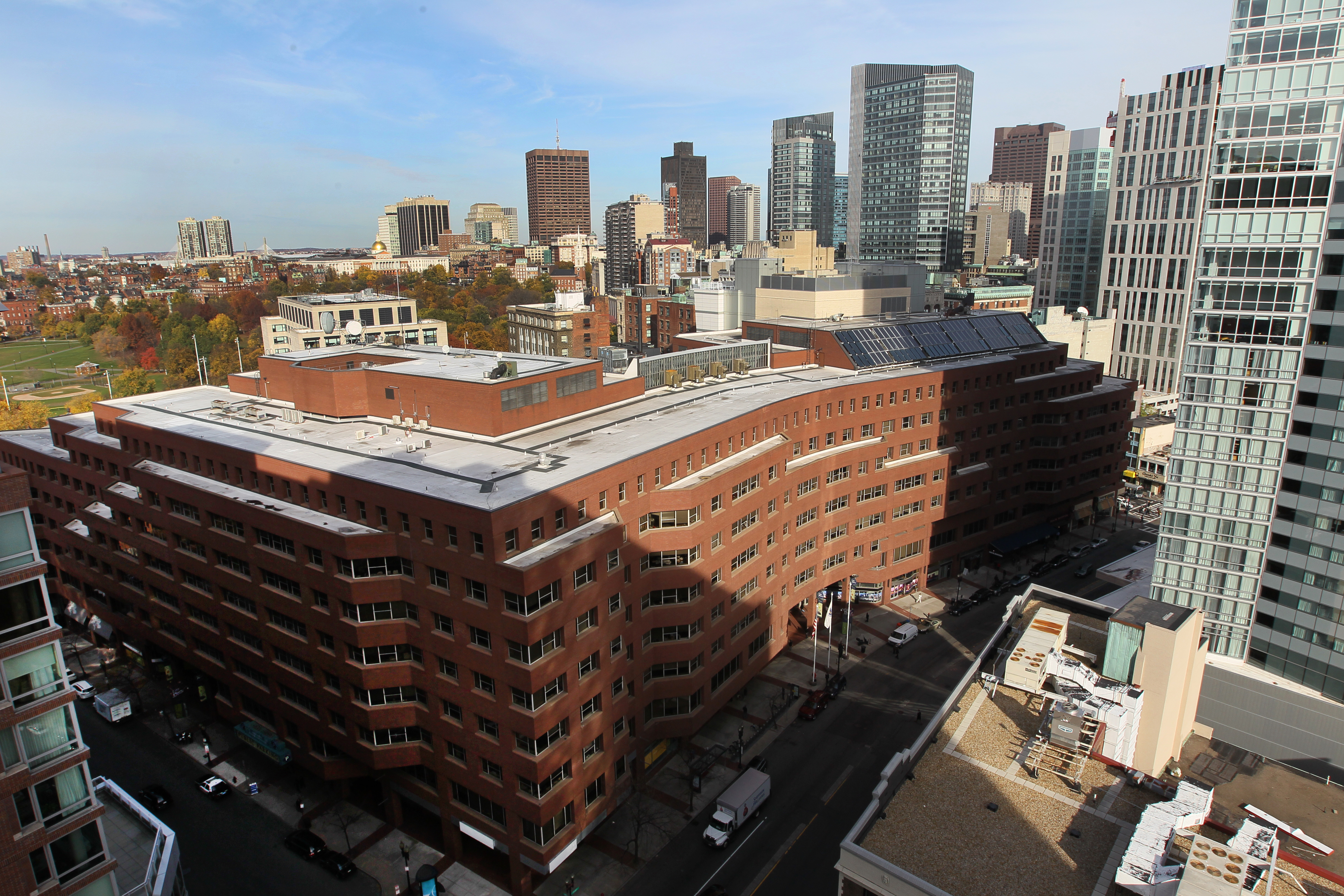As a new migrant shelter is set to open in Boston's Fort Point neighborhood, House Democrats voted Wednesday to steer another $245 million toward the overwhelmed emergency family shelter system while capping how long people can receive its services, along the way rejecting a Republican proposal to limit program eligibility.
The House voted 121-33 to approve the spending bill, which also makes permanent some pandemic-era policies like takeout drink sales. Eight Democrats voted against the bill -- Reps. Mike Connolly of Cambridge, Colleen Garry of Dracut, Natalie Higgins of Leominster, Joan Meschino of Hull, David Robertson of Tewksbury, Danillo Sena of Acton, Erika Uyterhoeven of Somerville, and Jonathan Zlotnik of Gardner -- in addition to unenrolled Rep. Susannah Whipps of Athol. All Republicans also voted no.
WATCH ANYTIME FOR FREE
Stream NBC10 Boston news for free, 24/7, wherever you are. |
The bill features a new approach to how Massachusetts administers emergency family shelters, more than a year after demand for services began to spike amid an increase in new migrant arrivals and four months after Gov. Maura Healey capped the maximum number of families in the system.
With the Healey administration projecting shelter costs will pass $900 million this fiscal year and next, House Democrats are growing more mindful of difficult budget choices and now say they need to make changes to keep the system afloat.
Get updates on what's happening in Boston to your inbox. Sign up for our News Headlines newsletter.
"It has become crystal clear that the federal government will provide no relief for states like ours who are facing this emergency all over the country," House Ways and Means Committee Chair Aaron Michlewitz said during Wednesday's session. "Washington seems to care more about playing politics on this issue rather than offering solutions for us to implement. That inaction has forced us to make difficult decisions."
"Without making some temporary changes to this program, it'll collapse under its own weight," Michlewitz added.
Massachusetts, which is the only state in the country that guarantees emergency shelter services to some families and pregnant women, eclipsed a record number of families in the system months ago. The sustained need prompted Healey in the fall to impose a capacity limit of 7,500 families.
As of Wednesday, there were 783 families eligible for shelter but on a waitlist because no spots are available, according to a spokesperson for the Executive Office of Housing and Livable Communities.
To trim costs while keeping services operational, the bill caps most shelter stays at no longer than nine consecutive months, compared to the current average stay of 13 to 14 months. Shelter residents who are employed or enrolled in a job training program could get another three months. The bill is mostly silent on what would happen to families once they hit the time limit, but Michlewitz said it gives the Healey administration options to create a "reapplication process" for people who hit the limit.
The bill would automatically provide 12 continuous months of shelter for pregnant women, people with certain disabilities and, thanks to a pair of amendments, veterans and people at "imminent risk" of domestic violence.
Michlewitz told reporters after the vote that the measure would reduce the needed spending on the shelter system, but did not provide specific estimates.
"I can assume pretty substantially that it'll be under a billion dollars. Right now, it's at a billion dollars and basically growing by the day," Michlewitz said. "It'll be under a billion dollars. It won't be the $250 million that we traditionally [appropriated for] the shelter line item previously, so it'll be somewhere in between that."
Anti-homelessness advocates criticized the proposed time limits after the bill emerged Tuesday, warning that capping shelter stays could put already-vulnerable families at risk.
Rep. Alice Peisch, the House's assistant majority leader, said Wednesday that her colleagues "understand that there is no good answer."
"We don't want to find ourselves in the position nine, 12 months out where we have $0 for this program and we have thousands of families on the street," the Wellesley Democrat said. "We are not closing off the program at the entry level. We're trying to give everyone an opportunity to transition into their new lives here."
Time limits would lift on either July 1, 2025 -- changed via amendment from April 1, 2025 in the original draft -- or whenever the Healey administration lifts the capacity limit of 7,500 families, whichever comes first.
The bill would also offer tax credits of $2,500 per trainee to businesses that provide workforce training to people in shelters, and require expanded hours at overflow shelter sites.
Michlewitz said even with the proposed time limit, Massachusetts would still offer "by far the most generous length of stay in the nation, with places like New York City and Chicago measuring caps with days, not months."
The House rejected Republican-led efforts to expand the bill's reforms.
Rep. Paul Frost, an Auburn Republican, pushed an amendment that would have limited eligibility for emergency family shelter only to people who have lived in Massachusetts for at least six months, with exceptions for survivors of domestic violence as well as natural disasters that occurred here.
He had proposed a similar change, albeit with a one-year residency requirement, when the House approved a previous tranche of shelter funding in November, but Democrats rejected the measure.
"We're a huge incentive for groups at our southern U.S. border to send folks here, directly here, because they know we're going to take care of them, we're going to give them shelter of some kind, food, health care and what have you," Frost said. "The solution is you can't be eligible the day you show up. You just can't."
"Let's make it six months -- you have to be a resident of Massachusetts for six months before you can access the program. I think that's fair, and I think it's reasonable," he added. "At least it's something that tells [people], 'No, sorry, Massachusetts cannot do any more. We are really, honestly full.'"
Democrats said they believe a residency requirement might draw a court challenge, further complicating the outlook.
The House rejected Frost's latest amendment 29-125. Democrat Reps. Garry, Robertson, Christopher Markey of Dartmouth and Jonathan Zlotnik of Gardner joined Republicans in support, as did independent Rep. Susannah Whipps of Athol.
By the exact same margin, the House also rejected another amendment filed by House Minority Leader Brad Jones that sought to expand access to the job training tax credit to businesses that hire low-income Massachusetts residents.
Jones told reporters he's concerned the projected spending on shelters will "crowd out other things in the budget," pointing out that the state is in the midst of the longest period of below-projected monthly tax revenue collections in at least 20 years.
"It's an unsustainable thing, and we think we need to do more than what's being proposed here," Jones said before Wednesday's session. "This may be a small step, but quite frankly, we think there should have been a bigger step taken months ago."
The chamber's top Republican also took aim at Democratic leaders for their pace of work. Healey's team rolled out the two-year, nearly $2 billion shelter cost estimate in December, and the governor filed her version of the spending bill in late January.
The House did not take any action for more than five weeks until the Ways and Means Committee released its redraft Tuesday, and Democrats announced plans to vote on it on Wednesday.
"The leadership had the rest of January and essentially the entire month of February and then a little bit of March. Members got this bill around one o'clock, noontime yesterday, and then had five hours to read it, understand what's being proposed and file amendments," Jones said. "So as always, democracy suffers."
"It's very frustrating, but that's become the way we operate," he added.
A change the House embraced during debate sets parameters on how families could lose access to shelter. The amendment, filed by Second Assistant Majority Leader Frank Moran, would require each shelter resident to receive at least 90 days notice before termination of their benefits and bars the state from pushing more than 150 families out of the program per week.
If the Senate and Healey agree with the House's proposed $245 million, the year-to-date total appropriation for emergency family shelters would rise to $820 million, more than four times as much as the state made available for the system in fiscal year 2021.
The Healey administration has projected it will spend $932 million on shelters this fiscal year, so it's not clear if Massachusetts will need another funding injection before the budget cycle ends to bridge the delta.
Michlewitz said Wednesday that the latest allocation "is to get us through the remainder of the fiscal year." Asked if there would still be any gap at the end of the year, Michlewitz replied, "I think we'll have to tackle that conversation as we get through the remainder of the fiscal year."
The bill also extends for one year a pandemic-era graduate student nursing program, and makes permanent other policies like to-go drinks and expanded outdoor dining. Those measures are set to expire at the end of March without action.
Michlewitz said House Democrats "feel it's something that has worked" since the option launched temporarily during the pandemic.
Package store owners have been fighting proposals to permanently allow the sale of takeout drinks by restaurants and bars -- an idea Healey floated in a separate bill -- and Mass. Package Store Owner Rob Mellion wrote to representatives Tuesday outlining his group's opposition.
"The time has come to be direct. Section 10 of [the bill] is vehemently opposed by local retail stores because it arbitrarily reshapes alcohol retail at the expense of off-premises stores by expanding all on-premises licensees to additionally have permanent off-premises retail privileges," Mellion wrote to the House. "There is no way that approval of Section 10 does not negatively impact alcohol retail stores. How would you react if your ability to generate income was arbitrarily reduced by the legislature and then handed over to your competition? That is what Section 10 does."
Attention now shifts to the Senate, where top Democrats have not given a clear indication of whether they support limiting how long families can stay in shelters.




